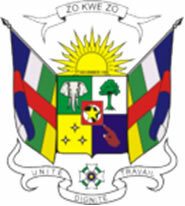There are in Portuguese primitive words, derived words, simple words and compound words.
- primitive words: those that, in the Portuguese language, do not come from another word. E.g.: stone, flower.
- derived words: those that, in Portuguese, come from another word. E.g.: mason, florist.
- simple words: those that have a single root. E.g.: oil, horse.
- compound words: those that have more than one radical. E.g.: cauliflower, plateau.
Compound words may or may not have their elements linked by a hyphen.

As word formation processes, we can mention:
- Composition
There will be composition when two or more stems join to form a new word. There are two types of composition: juxtaposition and agglutination.
⇒ Juxtaposition: occurs when the elements that make up the compound are placed side by side, that is, juxtaposed:
lightning rod
run Run
closet
Monday
sunflower
⇒ Composition by agglutination: occurs when the elements that make up the compound coalesce and at least one of them loses its sound integrity:
Brandy (water + burning), plateau (flat + high)
Legs (leg + tall), vinegar (wine + acrid)
- Derivation by adding affixes
It is the process by which new (derived) words are obtained by attaching affixes to the primitive word. The derivation can be: prefixal, suffixal and parasynthetic.
⇒ Prefix (or prefix): the new word is obtained by adding a prefix.
disloyal unhappy
prefix + stem prefix + stem
⇒ Suffix (or suffix): the new word is obtained by adding a suffix.
Fortunately loyalty
stem + suffix radical + suffix
⇒ Parasynthetic: the new word is obtained by the simultaneous addition of prefix and suffix. By parasynthesis mainly verbs are formed.
sadden
prefix + radical + suffix
evening
prefix + radical + suffix
- Other types of derivation:
There are two cases in which the derived word is formed without the presence of affixes. They are: the regressive derivation and the improper derivation.
⇒regressive derivation: the new word is obtained by reducing the primitive word. It occurs, above all, in the formation of nouns derived from verbs.
⇒Improper derivation: the new (derived) word is obtained by changing the grammatical category of the primitive word. Therefore, there is no change in form, but only in the grammatical class.
Watch:
dinner (substantive) drift from dinner (verb)
spider woman (the adjective spider drift from substantive Spider)
I didn't understand the reason for the fight. (O substantive why does it derive from conjunction why)
Other word formation processes:
Hybridism: is the word formed with elements from different languages.
automobile (auto: Greek; mobile: latin)
sociology (socio: latin; logia: greek)
sambódromo (samba: African dialect; dromo: greek)
By Marina Cabral
Specialist in Portuguese Language and Literature
Source: Brazil School - https://brasilescola.uol.com.br/gramatica/estrutura-e-formacao-de-palavras-ii.htm


